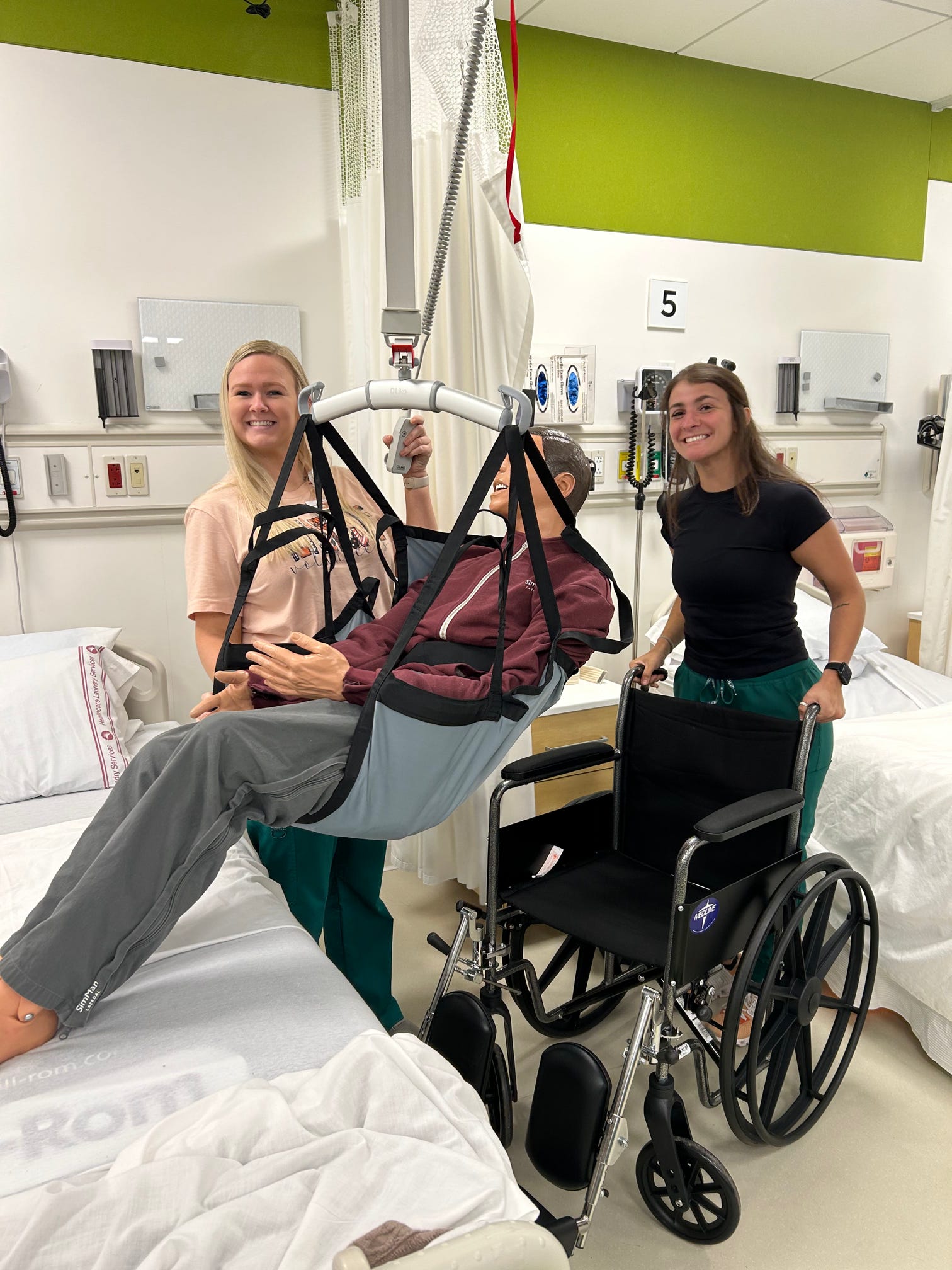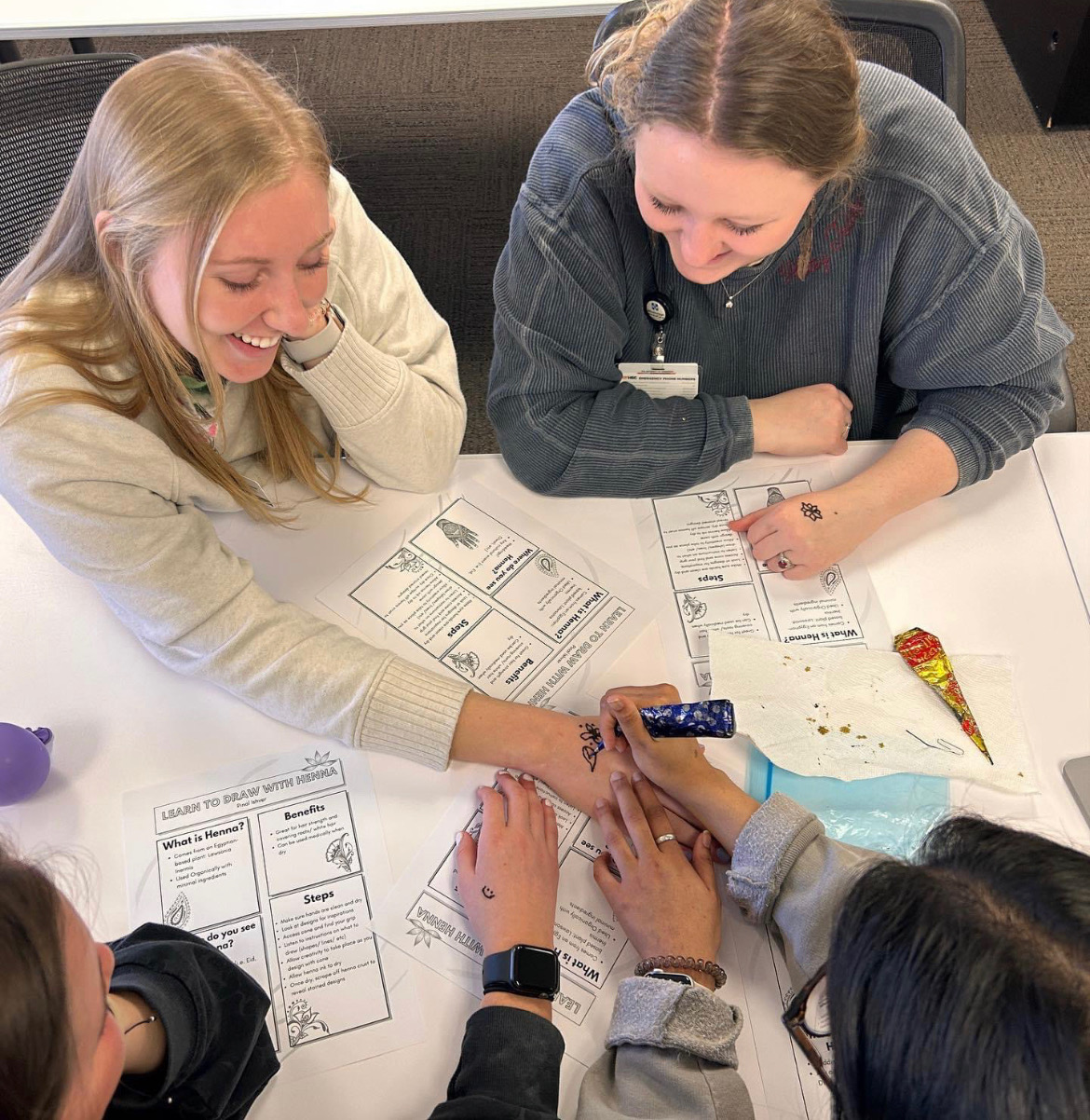What is OT?


Occupational therapy is the use of occupation to promote health and wellness. Occupational therapists are health professionals who use occupation and meaningful activities with specific goals to help people of all ages prevent, lessen, or adapt to disabilities. The activities may be as basic as bathing or dressing, or as complex as operating a computer with modified control switches. Today’s occupational therapists are working in clinical practice, community outreach, education, research, private practice, and a wide range of other fields.
Clinicians work directly with patients, helping them master skills for achieving an independent, productive, and satisfying life. Clinicians treat patients with a variety of disabilities, and help them return to family, work and community life. Among the many opportunities to specialize are pediatrics, gerontology, hand rehabilitation, and mental health.
The community occupational therapist may work with clients who are reintegrating into the community and need assistance in life skills such as anger management, time management, personal hygiene or other skills fundamental to success when returning to one’s family, work, or leisure roles. The expertise of the occupational therapist is key in rebuilding the client’s confidence in ‘doing’ those occupations which were disrupted by illness or trauma.
Occupational therapists in the administrator role direct the activities of an occupational therapy department, rehabilitation services, or other programs, such as a non-profit shelter for the homeless. Responsibilities might include program planning and management, policy development and budget preparation, staff and client education, and personnel management.
Occupational therapy educators design and teach courses, mentor students, provide community service, and participate in research. Faculty practice may involve clinical or community roles as supervisors, consultants or direct service providers. For most teaching positions you must have an advanced degree as well as practice experience in occupational therapy. The work setting is usually an academic institution such as a state university, medical center campus, or private college.
Researchers define problems for investigation, generate and disseminate new knowledge. Research may be combined with clinical practice or teaching in higher education.
Some ways occupational therapists might use their personal and professional skills to promote health and wellness through occupation include:
- assisting the mentally ill in returning to home, community or work;
- providing equipment and techniques to adults who have had a stroke to help them return to living independently;
- evaluating and treating children who are slow in development;
- assisting clients with cardiac problems in planning their daily activities to promote fitness and independence;
- providing stress management seminars to corporate executives to improve the balance of work and leisure interests;
- designing and constructing adaptive equipment to help those who are injured with performance of daily tasks;
- providing aquatic therapy to older adults in their assisted living facility;
- writing grants to address system gaps in the delivery of services, such as to the homeless, mentally ill, and dually diagnosed;
- providing seminars and consultation to an industry, instructing them in the safe and ergonomically sound approach for the employees to carry out their responsibilities.
For more information about occupational therapy in general or occupational therapy
in Tennessee, please contact the:
American Occupational Therapy Association
Tennessee Occupational Therapy Association


Graduates of the UTHSC Program in Occupational Therapy are eligible to take the national certification exam, administered and scored by the
National Board for Certification in Occupational Therapy, Inc. www.nbcot.org
Students should be aware that a criminal background check will be required prior to admission and that character review questions are a component of the national certification examination application.
A Felony Conviction may affect a graduate's ability to sit for the NBCOT Certification Exam or attain state licensure.
Once a graduate obtains a passing score on the certification exam, the individual contacts the state regulatory board to obtain licensure in the state where the graduate intends to practice. Located in Nashville, the Board of Occupational Therapy is a Division of the Health Related Boards that governs licensure and the practice of occupational therapy in the state of Tennessee. The Board can be contacted at:
A criminal background check is required to enter the OT program. Additional background checks may be required to complete fieldwork assignments. It is the student's responsibility to incur any costs associated with obtaining additional background checks.
Occupational therapists have many exciting career opportunities awaiting them upon graduation. The major areas of employment currently are:
- School systems
- Rehabilitation centers
- Nursing homes
- Hospitals, including VA and military
- Mental health centers
- Home health agencies
- Hand clinics
- Ergonomics Consulting
- Design and accessibility consulting and home modification
- Older driver assessment and training
- Consulting to assisted living facilities
- Technology and assistive-device development and consulting
- Health and wellness consulting
- Low-vision rehabilitation
- Addressing Alzheimer’s disease and caregiver training
- Addressing the needs of children and youth.
- Community services
Characteristics of an individual well suited to a career in occupational therapy include excellent interpersonal and communication skills, flexibility, initiative, empathy, creativity, integrity, and a desire to learn, grow and contribute professionally throughout one’s career.
